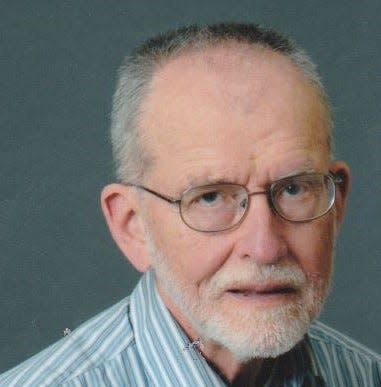R.I.P. Mikhail Gorbachev: He gave reforms a good try
- Oops!Something went wrong.Please try again later.

Mikhail Gorbachev, who recently died at age 91, brought to life a political possibility I had discussed decades earlier in my 1961 honors thesis at Willamette University: "On The Possibility of Peaceful Reform In A Relatively Totalitarian State."
Seven years later, in 1968, the leader of Communist Czechoslovakia, Alexander Dubchek, attempted to introduce democratic reforms in that country but was thrown out after Soviet troops invaded.
By this time I was teaching college political science, including courses on Soviet politics. For many years after the Czechoslovak excitement, my students and I speculated about what might happen if a similar reformer wormed his way to the top of the Communist Party of the Soviet Union. Who could invade the U.S.S.R. to "rescue it" from such a reformer?
Gorbachev became the top leader in 1985, but it was awhile before we realized that he was a Soviet "Dubchek." When Pravda published a poem arguing that censorship was un-Marxist (!), it was a sign that Gorbachev might be our man. One of his two major reforms, glasnost ("openness," free speech) was obviously getting serious.
I spent the summer of 1989 with a group of 50 other Americans studying Russian at the Hertzen Institute in Leningrad. It was an interesting summer!
One day, Gorbachev flew into town just long enough to fire the Party boss there. A big convoy of limousines that I saw that day was probably Gorbachev's party.
The Communists had made strikes illegal, but the coal miners went out on strike. My wife, who remained home in Michigan, was afraid to mention this during our phone calls, for fear the secret police, probably listening in, would cut the connection. But we were all well aware of the strike.
We feared that railroad workers would go out on sympathy strike, stranding us in Moscow where we visited before flying back to the U.S. from Leningrad, but thankfully the railroaders didn't.
Thanks to Gorbachev's glasnost campaign, crowds were gathering every evening in front of the Kazan Cathedral, near where we were living. Multiple orators addressed themselves Hyde Park style to small groups of people gathered around them, putting up various manifestos and political proposals.
On a short visit to Tallinn, capital of Soviet Estonia, we saw people circulating petitions for Estonian national independence, which earlier would have seen them shipped off to the Gulag Archipelago.
Ultimately, Gorbachev's free speech policy destroyed the Soviet Union, since nationalists in Estonia and the other "union republics" that made up the U.S.S.R. doubled down on demanding national independence. Gorbachev resigned as president of the U.S.S.R. on Dec. 25, 1991. The Soviet Union ceased to exist and was replaced by 15 independent countries.
What the Soviet national anthem had proclaimed an "unbreakable union of free republics" proved all too breakable. The breakup made an even bigger shambles of an economy that was already a shambles. It was like the economic mess in England caused by Brexit (its recent departure from the European Union), but much much more serious, and it lasted 10 years.
Ending this shambles after he came to power, Vladimir Putin earned so much popularity that he might win even an honest election, although he is taking no chances on allowing that to happen.
Gorbachev, on the other hand, is widely blamed by Russians for the Soviet crackup. So we didn't see widespread national mourning over his death.
Outside Russia, however, he is widely revered for having ended the Cold War.
I wish Gorbachev had succeeded in reforming the Soviet Union while holding it together.
If the country had held together, the many "little" wars between its former members and the current tragic "special military operation" would not have happened, since Ukraine and Russia would have remained parts of a single country.
And Vladimir Putin probably would never have come to power.
Paul F. deLespinasse is a retired professor of political science and computer science at Adrian College. He can be reached at pdeles@proaxis.com.
This article originally appeared on The Daily Telegram: Paul deLespinasse: Mikhail Gorbachev: He gave reforms a good try
